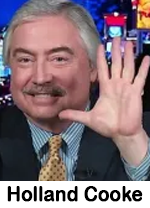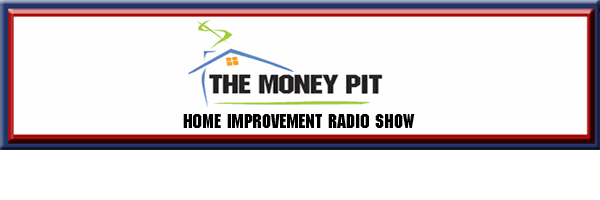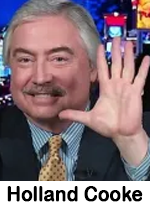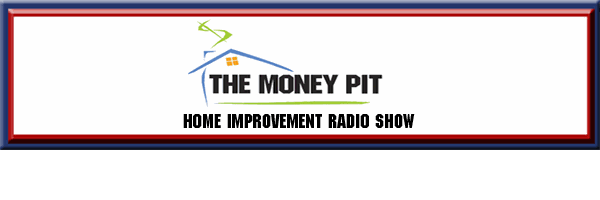UNESCO Takes Strong Position on the Continuing Need to Protect AM Radio in Cars (and All Terrestrial Radio)

In conjunction with today’s celebration of World Radio Day 2024 (WRD 2024), the United Nations educational, scientific and cultural agency UNESCO has issued a powerful statement supporting the necessity of AM radios remaining in automobiles and the importance of all “terrestrial” radio for the maintenance of freedom and peace throughout the world. The following position titled “Radio, the Trusted Guide in a Changing World” has been posted on UNESCO’s WRD 2024 web page:
Article 19 of the Universal Declaration of Human Rights states: “Everyone has the right to freedom of opinion and expression; this right includes freedom to hold opinions without interference and to seek, receive and impart information and ideas through any media and regardless of frontiers.” World Radio Day 2024 marks 100 years of radio, a period in which it has become the medium that is arguably closest to human hearts and minds, providing news, entertainment and education in all corners of the world. It satisfies our need to be informed both for day to-day decision-making and in times of emergency and crisis. Over the past century, radio has proved itself as a crucial medium in maintaining freedom of opinion and expression, often being the only one still up and running in times of crisis. Studies have repeatedly shown that radio has the greatest trust, with most citizens rating it above television, the internet, social networks or the written press. Radio is a triumph of accessibility, immediacy and intimacy, and there’s a strong public-interest case for protecting it and our access to it. We believe that remaining easily accessible to all people, in all places, regardless of how they receive radio means using terrestrial broadcast networks (both analogue and digital) – still relied upon by the majority of listeners globally – and fostering online access to radio that is just as democratic and open. Cars are a particular concern, consistently among the most popular locations for radio listening. Whether it is terrestrial broadcast or internet, radio in cars should not just be easy to find, it must be impossible to miss. Information is a public good and a shared resource for all of humanity. Radio has its place in the digital transformation of the information ecosystem, complementing the internet and digital platforms. The evolution of communication technologies should advance people’s right to receive information and ideas through any media – instead of regressing it. We call upon governments, regulatory bodies, the technology and automotive industries, and all members of the global radio community to put safeguards in place to ensure that radio continues to thrive; to protect the free and unfettered access radio provides to a plurality of opinions and to trusted information; to allow radio to continue to help communities and all minority language speakers to receive information and participate in democratic processes; and to ensure radio remains available to all people regardless of their financial means or personal circumstances.
TALKERS founder, Michael Harrison, who has served as executive advisor to UNESCO on WRD 2024 and fully supports its stated position on preserving radio, states, “Working with UNESCO in this capacity has sharpened my global perspective on the AM car radio issue in as much as the argument in America focuses primarily on the use of radio for emergencies – a limited and short-sighted proposition to which the automobile industry has intelligently responded. The issue however is much larger. As UNESCO’s chief of section for media development and society, Mirta Lourenco puts it, ‘The free flow and easily accessible information provided by terrestrial radio supports the spirit of the First Amendment via the concept of media pluralism and more. This expands to a valid concern about privacy rights – which is equally important to freedom and democracy. With GPS and internet platforms simultaneously in our cars, we are turning the enormous power to invade the privacy of individuals over to a mere handful of Big Tech giants. They know what and who we listen to, including where, when and how we travel.’” Harrison adds, “Finally, I am compelled as a lifelong radio broadcaster and publisher of a major trade journal to protect the viability of radio stations as a going concern and the well-being of their owners, employees, and listeners.”
the automobile industry has intelligently responded. The issue however is much larger. As UNESCO’s chief of section for media development and society, Mirta Lourenco puts it, ‘The free flow and easily accessible information provided by terrestrial radio supports the spirit of the First Amendment via the concept of media pluralism and more. This expands to a valid concern about privacy rights – which is equally important to freedom and democracy. With GPS and internet platforms simultaneously in our cars, we are turning the enormous power to invade the privacy of individuals over to a mere handful of Big Tech giants. They know what and who we listen to, including where, when and how we travel.’” Harrison adds, “Finally, I am compelled as a lifelong radio broadcaster and publisher of a major trade journal to protect the viability of radio stations as a going concern and the well-being of their owners, employees, and listeners.”



 As this week’s first Republican presidential debate looms, my FOX News Radio-affiliated client stations are irked. Thanks to their network, they’re carrying it live, and locally sponsored, and promo-ing it aplenty. A couple of my clients will travel to Milwaukee to wrap pre- and post-game color around the play-by-play. So, yuh, they’re irked.
As this week’s first Republican presidential debate looms, my FOX News Radio-affiliated client stations are irked. Thanks to their network, they’re carrying it live, and locally sponsored, and promo-ing it aplenty. A couple of my clients will travel to Milwaukee to wrap pre- and post-game color around the play-by-play. So, yuh, they’re irked.
 A beautiful night. Paul Galvin and William Lear took their girlfriends to a romantic look-out view. Paul asked, “Isn’t this great?” His girlfriend replied, “It would better if we could hear music.”
A beautiful night. Paul Galvin and William Lear took their girlfriends to a romantic look-out view. Paul asked, “Isn’t this great?” His girlfriend replied, “It would better if we could hear music.” In Dominion Voting Systems’ $1.6 billion lawsuit, testimony and internal communications demonstrate that FOX News management and talent privately doubted election fraud claims they were broadcasting. Tucker Carlson messaged Laura Ingraham: “Sidney Powell is lying by the way. I caught her. It’s insane.”
In Dominion Voting Systems’ $1.6 billion lawsuit, testimony and internal communications demonstrate that FOX News management and talent privately doubted election fraud claims they were broadcasting. Tucker Carlson messaged Laura Ingraham: “Sidney Powell is lying by the way. I caught her. It’s insane.”